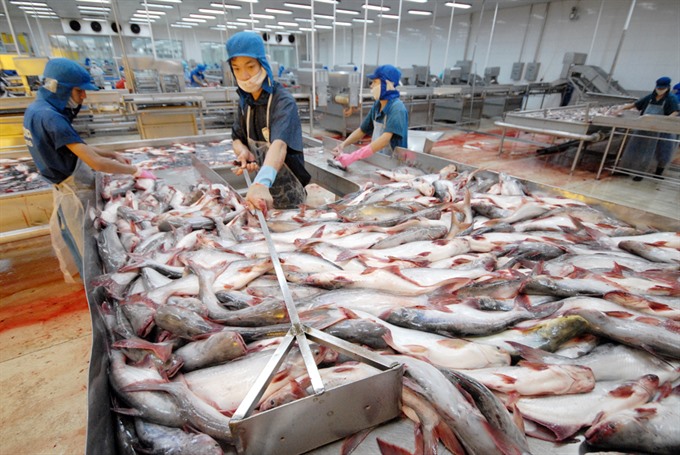 Economy
Economy

As importing countries impose trade barriers to protect their goods and products, they often utilise trade remedies against exporting countries. There are short-term solutions for exporters, like Việt Nam. But in the long run, enterprises still need strategic planning and specific steps to overcome trade barriers in order to increase exports and develop sustainably.
 |
Export companies should have a division specialising in trade defence to meet the requirements of the investigation agency in time.— Photo bizlive.vn |
HÀ NỘI — As importing countries impose trade barriers to protect their goods and products, they often utilise trade remedies against exporting countries. There are short-term solutions for exporters, like Việt Nam. But in the long run, enterprises still need strategic planning and specific steps to overcome trade barriers in order to increase exports and develop sustainably.
Passive in self-defence
When markets open to fulfill integration commitments, importing countries tend to increase scrutiny on goods from Việt Nam, often applying trade remedies like anti-dumping and anti-subsidy policies. Despite continuously facing these trade remedies, Vietnamese businesses remain very passive in guarding against them. They lacked understanding of trade defence tools.
As importing countries have suffered strong competition, especially from the near markets such as China, Malaysia and Indonesia, the significance of the trade defence of businesses has also increased.
Nguyễn Phương Nam, deputy head of the Department of Trade Defence under the Ministry of Industry and Trade (MoIT), said that there have been more than 120 trade remedy lawsuits related to Vietnamese exports initiated by importers such as the US, EU, Brazil, Turkey and Australia.
Statistics from the department show that in the 2016-17 period, Vietnamese firms have been sued 23 times by importing countries. Australia brought six anti-dumping and anti-subsidy cases against firms exporting aluminium and galvanised steel, coils and wind towers.
Trần Thanh Hải, deputy director of the MoIT’s Import-Export Department, said that the ways in which countries can enact Technical Barriers to Trade (TBT) are very diversified and complicated, especially in big markets such as the US, EU and Japan. For example, for textiles and garments, the US and EU are two major markets for Việt Nam’s garment exports. However, these are also the most difficult markets with many regulations that constitute Technical Barriers to Trade.
The US has over 60 technical regulations for textiles and garments on labeling, symbol, clothing instruction, and fire resistance standards for yarns, wool carpets fire and sleepwear; and regulations on children’s wear. In addition, the EU also has over 80 technical regulations such as: EC label, regulations on labeling and registration, evaluation, licensing and restriction of chemicals (REACH), regulations on ecolabel and OKO-Tex 100 label or origin regulations, Hải added.
Effective tool
In order to successfully appeal in the export markets, experts advise Vietnamese businesses to scrutinise the plaintiffs’ allegations about the country’s subsidy programme. At the same time, ministries, sectors and associations should closely coordinate in providing information and explanations on the alleged programme to the investigating authority.
In addition, businesses should carefully analyse the plaintiff’s question, allegations and facts to develop an appropriate strategy before and during the preparation of the response and reporting of the data.
As predicted by the Department of Trade Defence, in the upcoming time, firms in importing countries will use more trade remedies.
Trade remedies are considered the final barrier against the current trend of deepening and broadening international integration.
As Việt Nam faces other countries’ implementation of trade remedies, it should acknowledge that they are also a useful tool domestically. They are easier to use than other instruments that WTO commitments allow. In the near future, trade remedies will be a very effective tool to protect domestic businesses from import competition.
Export companies should have a division specialising in trade defence to meet the requirements of the investigation agency in time.
Currently, the MoIT is urgently working with related units to solve difficulties for businesses in a timely manner. Particularly, the ministry will abolish the specialised inspection regulations and procedures which have caused difficulties for enterprises in the past. — VNS




